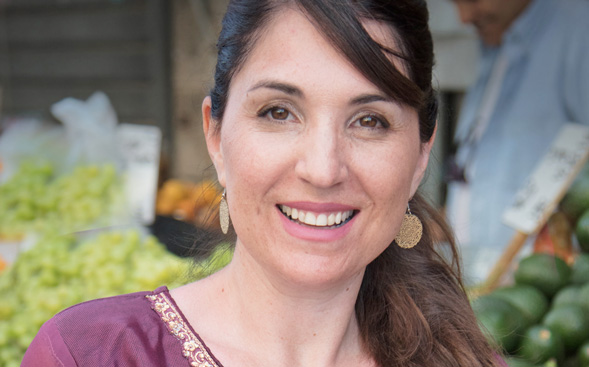
FROM SARAH, OUR SABRA
ON THE GROUND IN ISRAEL
Dear Friend,
Greetings to you from the Holy Land. I am excited to share with you more life experiences and lessons learned as my family and I walk through life as Messianic Jews here in Israel.
LIVING IN CAESAREA
The Covid-19 pandemic meant spending much of this summer at home. The experience turned out to be lovely — being together so much and finding the joy of small blessings in the midst of this season of many changes.
We live near the ancient city of Caesarea, which is now a modern-day national park. For our “date nights,” my husband Evan and I frequently visit the cafes built among the old ruins. The family also loves to go there for a fun night out to get ice cream. It is one of those perks, you see, of living in Israel that we get to stroll streets built thousands of years ago and imagine what life must have been like for those who walked them back in Biblical times.
Caesarea was built around 22–9 B.C. as a major port city of its time by Herod The Great, who also built the Second Temple in Jerusalem. To capitalize on the Mediterranean maritime trade routes that passed by the northern coast of Biblical Israel, Herod built an enormous harbor for the merchant ships, anticipating that it would drive commerce in the city. Thus, Caesarea quickly became the provincial capital of Roman Judea.
THE “SICKNESS” OF WEALTH
As the capital, Caesarea drew very wealthy and aristocratic people who wanted to be close to the seat of Roman power in the region. Money, status, politics, business, religion, and power all interwove to become the tapestry of daily life in this important Roman city.
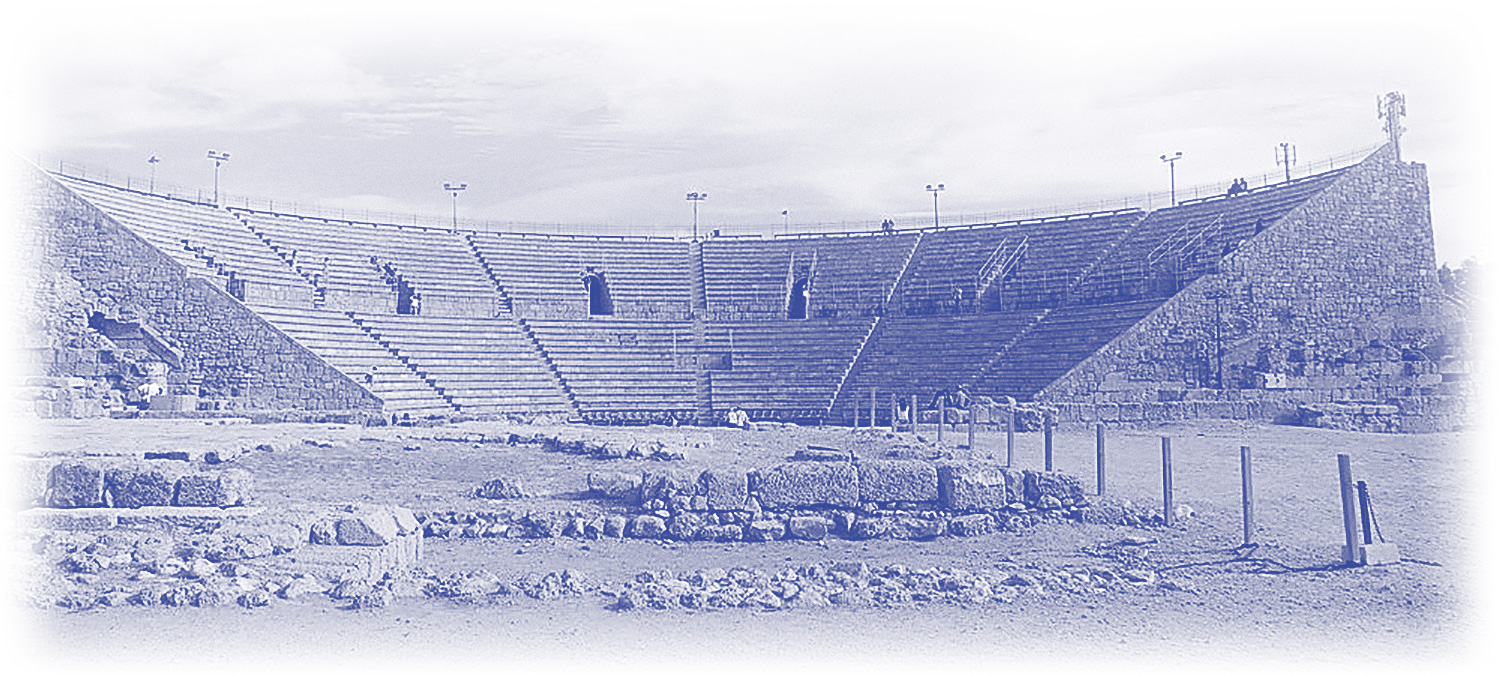
On a recent family trip to the port, we passed a sign above a chamber called a “vomitorium.” A vomitorium was an exit from a stadium or theater that spewed crowds onto the street. To make a point, I mentioned the rumored tales about rich, ancient Romans purging during large feasts. They did this to “make more room” for more eating and drinking during the festivities.*
The very rich were reputed to have a slave whose job was to tickle his master’s throat with a feather so that the master could vomit. “Imagine having that job,” I teased. The kids’ eyes opened wide. No one in our family wanted that job!
*Seneca, a Roman Stoic who lived from 4 B.C. to A.D. 65, wrote of slaves cleaning up the vomit of drunks at banquets, and in his Consolation to Helvia, he summarized the vomitorium idea metaphorically, referring to what he saw as the excesses of Rome: “They vomit so they may eat, and eat so that they may vomit.”
A SIN WITHOUT SERMONS
This kind of behavior, I told my children, is called “gluttony.” The word means the over-indulgence and overconsumption of anything to the point of waste. In the Bible, we find many references clearly depicting gluttony as a sin (Philippians 3:19, Proverbs 23:20–21). God, it seems, does not suffer us to overeat. However, in my years of faith, since childhood, I’ve never heard a sermon preached on this topic.
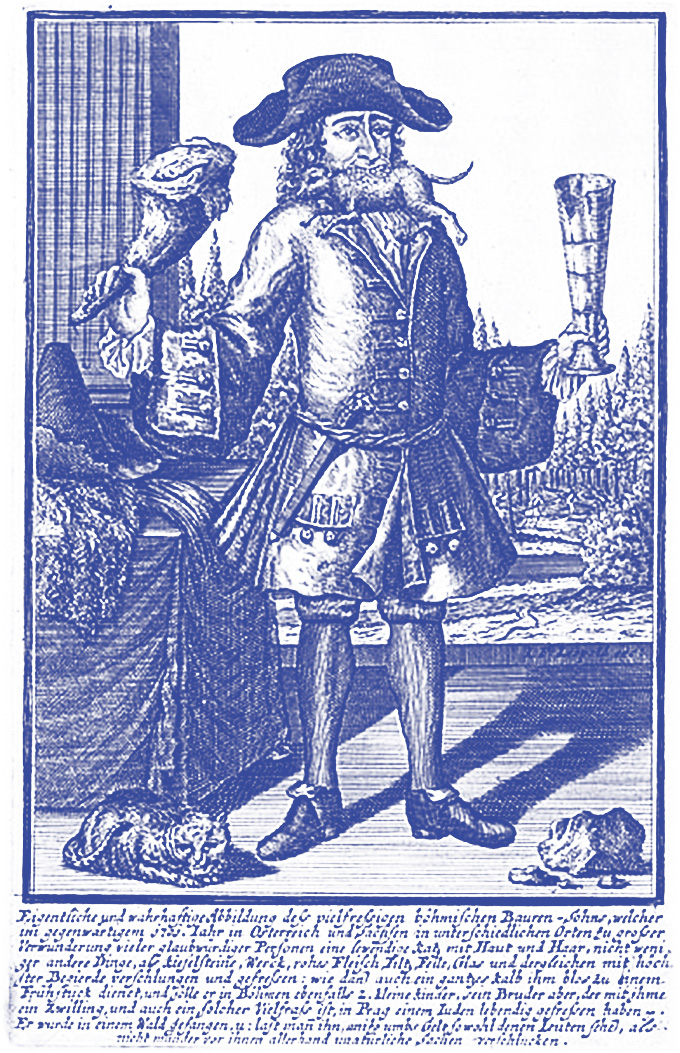
We, as Believers (“Believers” is short for “believers in Yeshua/Jesus as Messiah”), are clear about how smoking, drunkenness, a foul mouth, gambling, etc. are not behaviors that should be part of a redeemed Believer’s life; but gluttony may be the most overlooked sin in our churches and faith culture today.
In Ezekiel 16:49, God makes this statement through His prophet: “Now this was the sin of your sister Sodom: She and her daughters were arrogant, overfed, and unconcerned; they did not help the poor and needy.”
God is deeply concerned with what and how much we eat, because our ability to control our physical appetite is a telltale sign of our control over other bad habits, like gossip, anger, lust of the eyes, lust of the body, covetousness, strife, etc.
Our ability to say “no” to these behaviors that are harmful is a direct sign of the Spirit operating in our life — self-control (Galatians 5:22). Another word for “gluttony” is “intemperance.” Could this sin also apply to substances other than food?
The Bible teaches that Believers should not let our appetites control us; rather we should be able to control our appetites (2 Corinthians 10:5; 2 Timothy 3:1–9). It follows, then, that binging on Netflix instead of going to sleep on time, or buying too much “stuff” is also intemperance.
The Bible also teaches us that we are temples of the Lord. Our bodies — with our minds and spirits — make up that temple. 1 Corinthians 6:19–20 tells us clearly: “Do you not know that your bodies are temples of the Holy Spirit, who is in you, whom you have received from God? You are not your own; you were bought at a price. Therefore, honor God with your bodies.”
GOD’S REPROOF
About ten years ago, God touched my life with the message of living with a pure heart. (Psalm 24:4–5). He has since gently and kindly guided me through trials and testing that showed me the areas of my life that needed transforming. He has also opened doors — the great reward of God’s authority that rests upon a surrendered life.
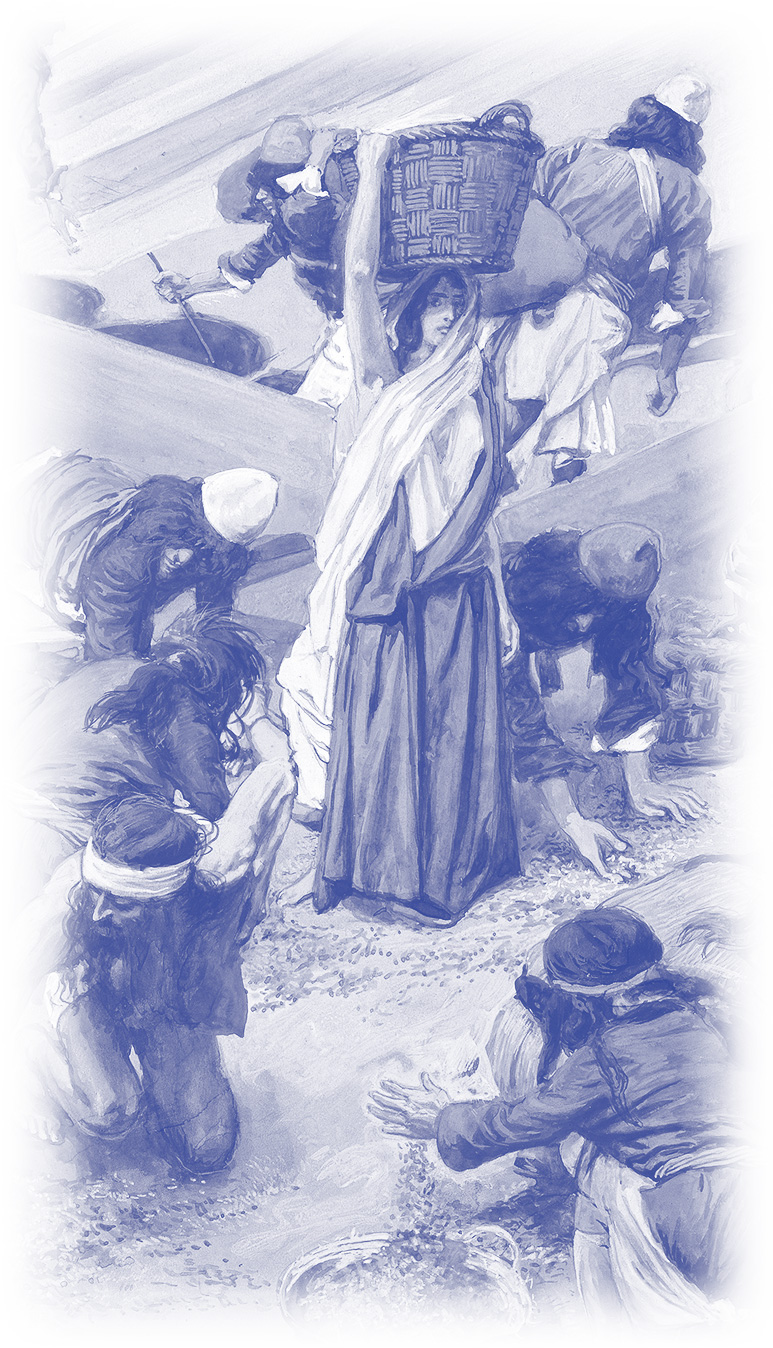
When it came to food, personal reflection revealed that I was addicted to sugar. We may not consider food an addiction like other addictions, but the wrong kind of food absolutely can be. In this area, I did not have a pure heart.
For example, the thought of fasting was unbearable to me. So was the thought of not eating meat. I even said that I would NEVER do a Daniel fast (eating plant-based foods only), because I craved the taste of meat. However, Yeshua instructed: “And when you fast, do not look dismal…” (Matthew 6:16). Notice that He advised when you fast, not if.
As with other addicts, the answer for me was to eliminate all sugar (which is in most foods today). Once I moved fully to a plant-based, whole foods diet, everything came into balance in my body, and sugar was no longer an issue for me. Eliminating everything except what I believe God called food meant that I now live craving-free.
In fact, fasting has become much easier, and I find myself looking forward to these times of rest. When I began eating this way, I felt that I had returned to the way God designed for us when He created man. This might sound strange considering our modern way of life, but I considered that it might have been His desire for us not just before the fall (and before Noah’s generation) but beyond that point as well.
The Book of Numbers illustrates this concept: After the people of Israel came out of Egypt, they found themselves in a prolonged journey through the desert. In this dry and arid environment, they had to rely on God for their sustenance. God supernaturally provided “manna.” Manna was a grain that fell from the sky like snow, which they gathered and used to bake cakes or patties (Psalm 78:23–25).
The Israelites also put manna in the Ark of the Covenant as a sign of God’s provision. However, the people desired meat “like they had in Egypt.” God became upset that the people did not like His solution and harkened back to their lives of slavery. In Numbers 11, God told Moses He would provide quail.
When the quail settled on the camp, the people went nuts. They gorged themselves on meat for a day and a half. When God saw their gluttonous behavior, He was infuriated and sent a plague to the camp, causing many Israelites to die. (Psalm 78 refers to this narrative.)
ALLOWING “THINGS” TO CONTROL

When we allow things — anything but God — to control our lives, even food, that violation leaves us open to attacks by the enemy. Satan is always lurking around, roaring like a lion, trying to figure out whom he may devour (1 Peter 5:8). By taking care of our bodies, we shore up that front and make our lives stronger and less vulnerable.
I hope that my sharing my very personal experience will help free you of whatever may resemble gluttony in your life — I am not suggesting that you need to do as I’ve done. Your message from God will likely differ from His message to me. Seek the Lord and discover what He advises YOU about your own life, taking care of your body, resting and eating and drinking. “I have the right to live my way,” you might declare. Certainly. But please take to heart what Paul wrote to the Corinthians: Not everything is beneficial. “I have the right to do anything — but I will not be mastered by anything” (1 Corinthians 6:12).
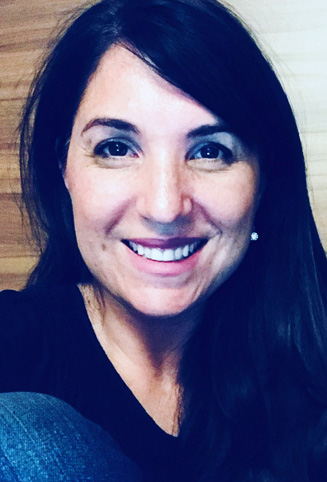
Im tirdefu lada-at oto —
“Press on to know HIM!” (Hosea 6:3 NLT),

Sarah Liberman
P.S. Do you have a testimonial about applying self-control to a troublesome situation? Write to me and tell me your story! I find comfort and encouragement in your testimonies. 

Israel’s Plans On Re-Opening Zola Tours
I’m no fan of asking, “Which do you want first — the bad news or the good?” Does anyone really want to hear bad news? Nevertheless, here’s the “bad news” first: We’re not in Israel right now. We should be; but unfortunately, the ministry’s second study tour to the Holy Land this year was canceled because of Israel’s closed borders.
But here’s the good news. A recent article from Israel states that they are extremely optimistic about resuming tourism in 2021. That, in fact, is really good news. Please pray with us that this March will find Zola Tours hosting a record number of pilgrims who experience this life-changing journey and bless the people of Israel at the same time.
Getting information from our Zola Tours manager Sandra is easy. Contact her at 214-696-9760, travel@levitt.com, or levitt.com/tours. She can help you prepare for your journey of a lifetime!
| Deluxe (Israel only) | Mar. 8–18 | $5,288 |
| Grand Petra (Israel & Petra) | Mar. 8–21 | $6,488 |
A Note from David and Kirsten Hart
Kirsten and I try our best to stay healthy. Sarah just inspired us above with her journey to “Biblical health” and the improvements she has made to have a healthier lifestyle. As grandparents, Kirsten and I want to live long and healthy lives so we can be around to see our adorable grandbabies grow up. Leaving a legacy of healthy choices has value for us, especially at our stage of life.
Jeff Seif, our Messianic teacher on Our Jewish Roots, can “out pushup” most of us, and he runs miles on a daily basis. Check out the September Levitt Letter (p. 14) to see where Zola’s son Mark mentions bicycling daily to keep physically fit. As a ministerial team, we all strive to maintain our physical temples. Thank you, Sarah, for your reminder that we walk through this life in God’s temple — these physical bodies — and should do our utmost to be diligent stewards of our health.
Diligent stewardship also pertains to our finances. Where and how we spend our dollars demonstrates what is important to us. When you invest in this ministry, you confirm that we are staying the course in the mission that our founder, Zola Levitt, began. God gave Zola a Biblical vision more than four decades ago. Since then, Mark along with his fellow staffers and the Berg Productions crew have faithfully preserved Zola’s legacy by carrying the baton of his calling.
The finish line? When the Lord Himself appears in the eastern sky. Until that day and hour, would you continue to assist us in our quest to reveal and share the glorious roots of Christianity by exploring its Jewish heritage and traditions? Teaching from both Testaments is an incredibly rewarding quest, albeit challenging at times. When you financially partner with us, you continue a relay race that began with the disciples of Jesus. We too are sharing the Good News, proclaiming His message of grace, love, and redemption.
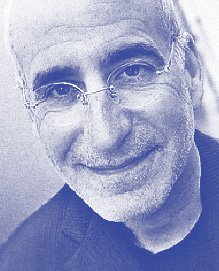
Our Jewish Roots TV programs this month
Amid Covid-19 rules and regulations, Berg Productions has been diligent to bring you new weekly programming via numerous networks and independent television channels. Please see our complete television broadcasting schedule at www.levitt.tv. We’re thankful that today’s pandemic has not stopped the spread of the Gospel!
We’ve socially distanced in the TV studio, worn masks, and washed our hands frequently in order to bring you uninterrupted programming. A special Thank You to production assistant Andrea Davis (the “glue” behind Berg’s TV production) for keeping us safe and nourished during our unconventional production sessions. We give thanks that our OJR crew has remained unscathed thus far by the coronavirus.
In October, we continue our series Divine Deliverance: from Avraham to Yeshua in which we examine how the Lord offered a message of deliverance through 12 significant Bible characters, beginning with Abraham and culminating with Messiah. Dr. Jeffrey Seif teaches and then discusses the lesson’s application with David and Kirsten Hart in the studio. We enjoy enlightening dramatic re-enactments from past series, along with Zola’s re-orchestrated music, sung by David and Kirsten.
- Ruth
- The loyalty of a young Moabite widow to her mother-in-law resulted in their deliverance from deprivation and in hope as Ruth joins Messiah’s lineage.
- David
- The young shepherd boy had great confidence in his God. Anointed by the prophet Samuel, David became king of Israel and the ancestor of the King of kings.
- Isaiah
- The most quoted prophet of the Old Testament, Isaiah points to the deliverance found only in Yeshua/Jesus.
- Ezekiel
- This exiled prophet saw dramatic visions of transformation: dry bones into living people, and water flowing from the dry mountaintop.
Set your alarm clock to watch us at your preferred television time, program your DVR, or watch the weekly program anytime you want at www.levitt.tv. You have many viewing options!
Sha’alu shalom Yerushalayim! —
“Pray for the peace of Jerusalem!” (Psalm 122:6),
David & Kirsten
P.S. Our ministry is gearing up for what is becoming our most challenging era. Your steady support enables us to forge ahead with God’s calling. 

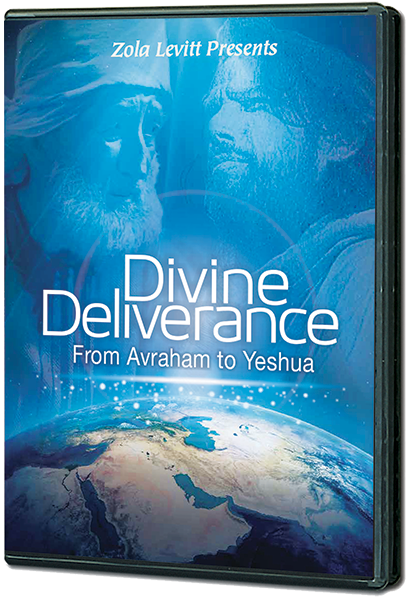
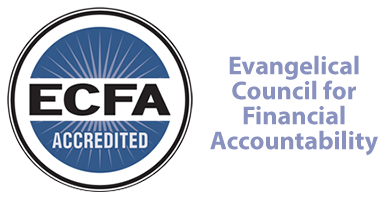 Zola Levitt Ministries is ECFA approved and has Charity Navigator’s top rating of 4 stars, plus Ministry Watch’s Give With Confidence Score of 100.
Zola Levitt Ministries is ECFA approved and has Charity Navigator’s top rating of 4 stars, plus Ministry Watch’s Give With Confidence Score of 100.


